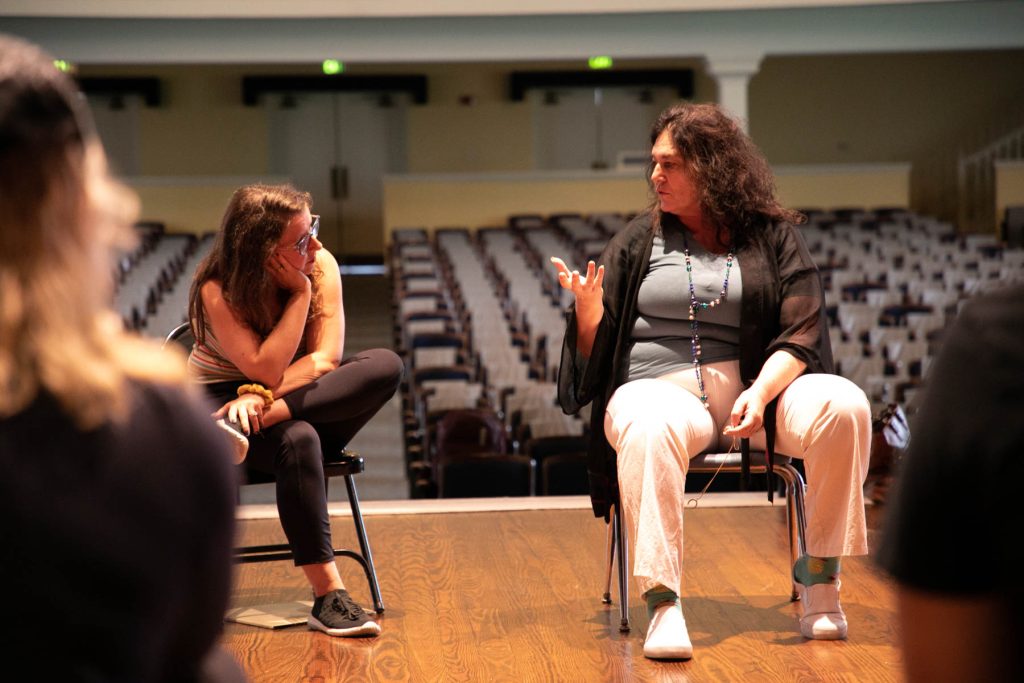The W MFA
in Creative Writing
Program Requirements
Residencies
Four In-Person Residency Courses
2 Short Residencies
(1 credit hour each)
2 Full Residencies
(2 credit hour each)
6 semester hours
Workshops
Four workshop courses. Can be the same or different genres:
- Fiction
- Nonfiction
- Poetry
- Playwriting
- New Media
12 semester hours
Literature or Forms
Forms - focus on exploring the craft of writing through reading
Literature - on writing through analysis and scholarship
12 semester hours
Electives
Can come from any courses:
- Workshop
- Literature
- Forms
- Special Topics
- up to 3 hours in additional Residency
12 semester hours
Thesis
Create a book-length project:
- Book of Poetry
- Short Story Collection
- Novel
- Essay Collection
- Creative Nonfiction book
- One or more plays
- Cross-Genre work
6 semester hours
Total: 48 semester hours
Short Residency
Short Residency classes are 1-hour courses in experiential, hands-on subjects, structured like a short master class. They might involve theatre, cinema, music, history, food, the environment, etc., and may be scheduled to coincide with campus events, such as the Eudora Welty Writers’ Symposium or off-campus events like the AWP Conference. New students are encouraged to attend the first Eudora Welty Writers' Symposium residency as an orientation to the program, the campus, and Columbus. Other short residency classes will be scheduled in the spring and summer to allow students a more flexible schedule. Short Residencies will last approximately five days plus additional time for preparation and reflection at home. Students will discuss readings about the assigned topic, complete the experiential learning component, and write about their experience.
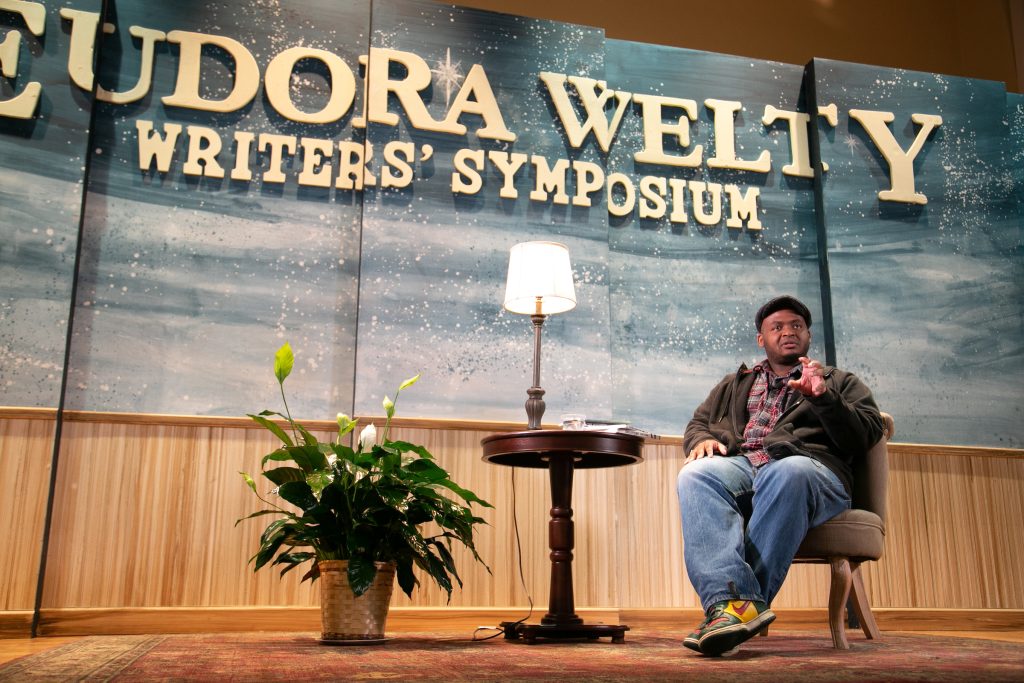
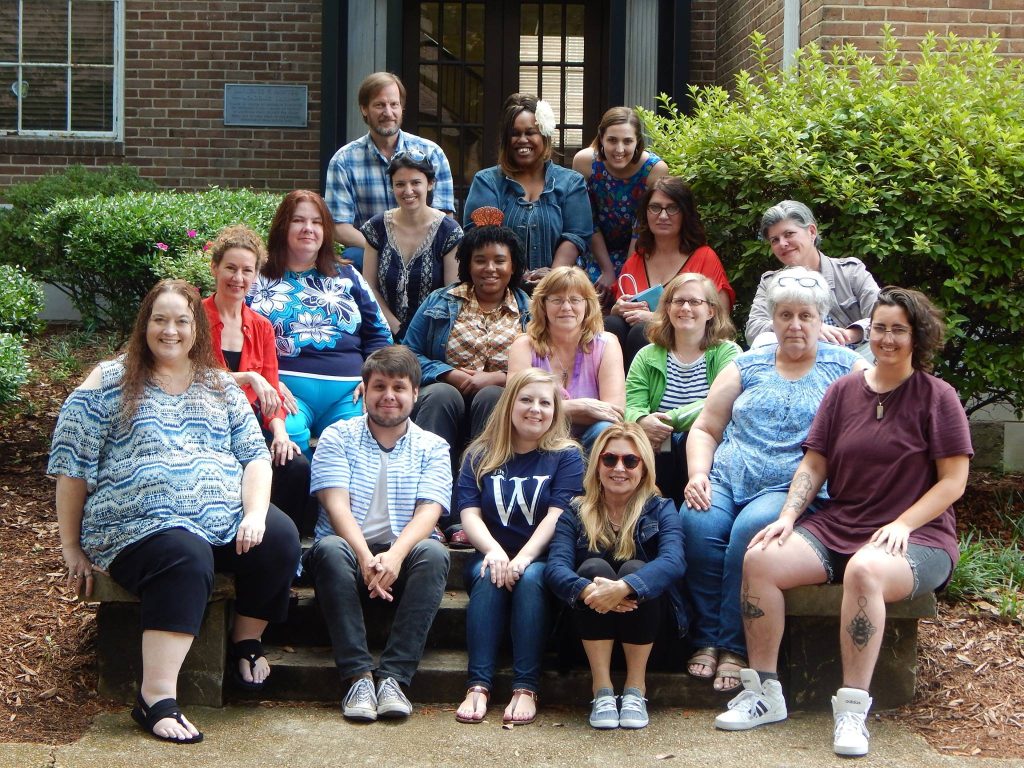
Full Residency
Full residency classes are 2-hour courses that include intense workshop sessions combining experiential learning with face-to-face workshop time and seminars on the profession of creative writing, such as publishing, pedagogy, and performance. Workshop groups will include students writing in different genres, so the discussion will extend beyond previous semester's workshop and encourage students to interact with their peers writing in other forms. The emphasis will be less on revision of specific texts, and more on each writer's growth as a writer. Written work coming out of the full residency workshops will be reflection on the writer's self-assessment and goals. The Full Residency periods will also provide time for face-to-face mentoring with the students' advisors and workshop leaders, and time for readings by visiting writers. Full Residencies are scheduled in late May, usually lasting 9-10 days from Memorial Day weekend to the following weekend.
Workshops
Workshop courses focus on writing. Students' primary work will be creative writing in the genre of the workshop. Other assignments may be included, such as readings in the genre and an analytical essay. Workshop discussion of student writing will be a main component of the course.
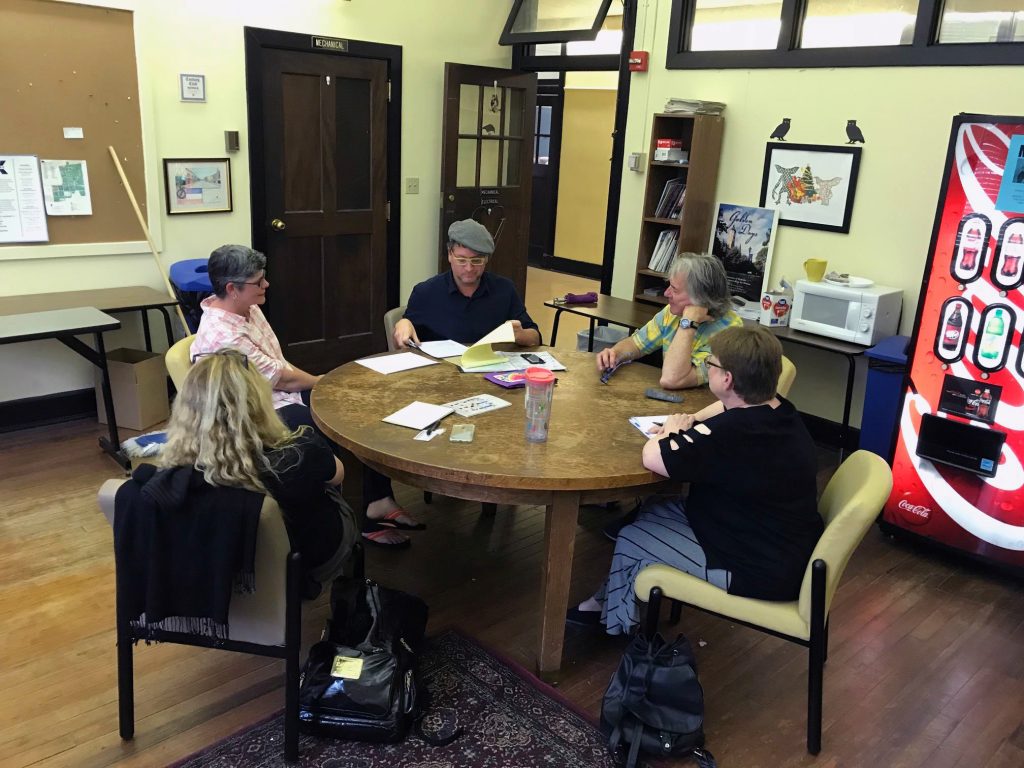

Forms & Literature
Forms
Forms courses focus on exploring the craft of writing through reading. Some creative writing may be included in the assignments for the course, but workshop discussion of this writing will be minimal. The primary assignments will be analytical essays focusing on the craft elements of the assigned readings.
Literature
Literature courses will also explore the craft of writing through reading, but the focus of analytical essays will be on literary scholarship and interpretation. Any courses may be used as electives once requirements are met, and may include internships and special topics courses.
Thesis
Every student must write a thesis in order to complete the MFA degree. Typically, you start taking thesis hours when you are nearly finished with your other courses. The thesis class consists of 6 hours, which may be done in one or two semesters. Timing the beginning and the defense of your thesis is important as you prepare to undertake this project.
A thesis is a book-length project, typically in one genre, though mixed genre theses may be allowed with the approval of the thesis committee. The project may include 50-80 pages of poetry, 150-200 pages of short fiction or nonfiction, 200-350 pages of a novel of full-length book of creative nonfiction, or a collection of one-act plays, or one or more full-length plays in three to five acts. These page ranges listed are meant as a guide. Actual thesis lengths may vary and will be approved by the thesis committee. If a student chooses a combination of genres, this will usually be presented as one book-length collection of related works in multiple genres.
Besides the final written manuscript, each thesis project will include a public performance, a craft essay or introduction, and a thesis defense.
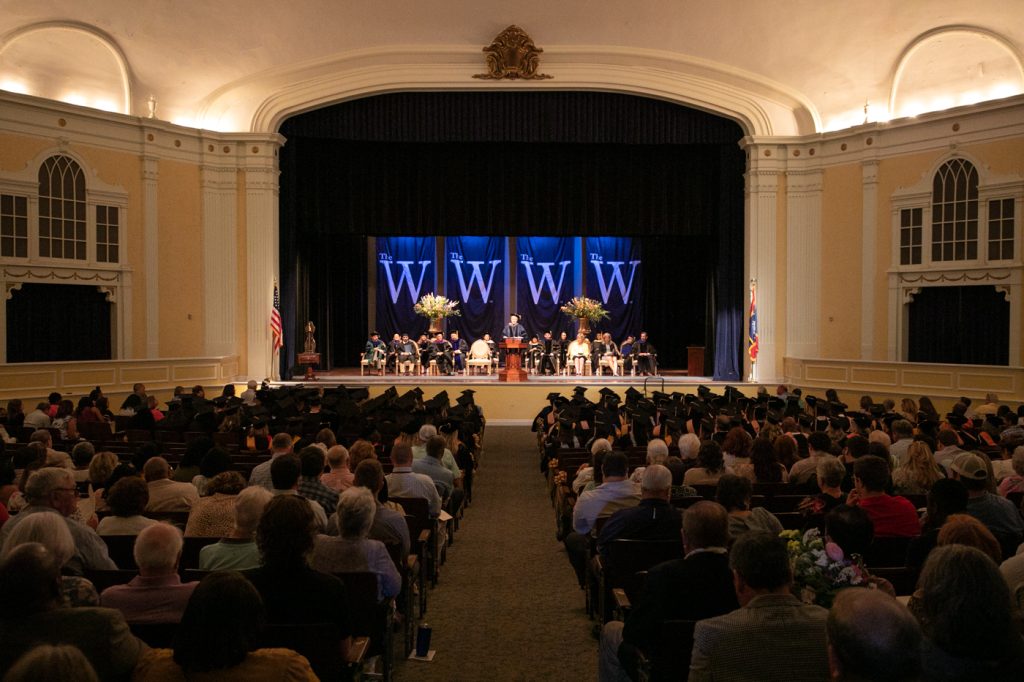
Collaboration
Playwrights and other writers interested in drama now also have opportunities to work with The W's Low-Residency MFA in Theatre Education. Theatre Ed students take part in our drama classes, and our students may take some theatre practicum classes. In addition, our playwrights have had their play scripts produced as stage readings and full productions. Opportunities are being explored for collaboration at the theatre residency as well.
